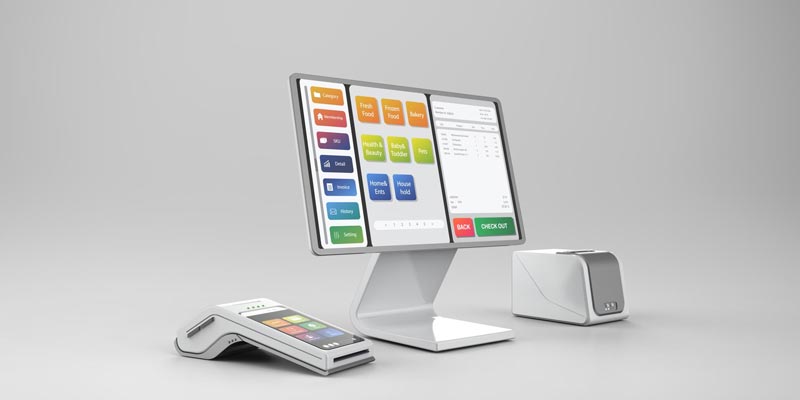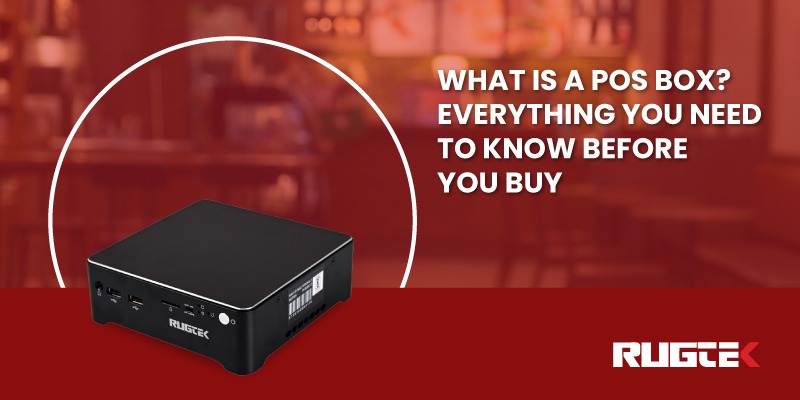In today’s fast-paced retail environment, efficiency and accuracy in billing processes can make or break a business. Whether you’re running a small boutique or managing a large retail chain, understanding modern point-of-sale technology is crucial for success. This comprehensive guide will walk you through everything you need to know about POS boxes and how they can transform your retail operations.

Understanding the Basics: What Is a POS Box?
A POS box, also known as a Point of Sale terminal or system, is a specialized computer device designed to handle retail transactions efficiently. Unlike traditional cash registers, what is a POS box represents a sophisticated piece of technology that combines hardware and software to process sales, manage inventory, and generate detailed reports.
These compact yet powerful devices serve as the central hub for all your retail transactions, integrating payment processing, inventory management, and customer data in one streamlined system. When we talk about what is a POS box, we’re referring to a complete solution that goes far beyond simple cash handling.
Why Your Business Needs a POS Box for Retail Billing
Modern retail operations demand more than basic transaction processing. A POS box for retail billing offers numerous advantages that can significantly impact your bottom line:
Enhanced Transaction Speed
Today’s consumers expect quick, efficient service. A quality POS box for retail billing can process transactions in seconds, reducing wait times and improving customer satisfaction.
Accurate Inventory Tracking
Real-time inventory updates help prevent stockouts and overordering, optimizing your cash flow and storage costs.
Detailed Analytics
Modern POS systems provide comprehensive sales reports, helping you identify trends, peak hours, and best-selling products.
Integrated Payment Processing
Accept various payment methods, including credit cards, mobile payments, and digital wallets through a single device.

Key Features to Look for in a POS Box
When selecting a POS box for retail billing, consider these essential features:
Processing Power and Speed
A robust processor ensures smooth operation even during peak sales periods. Look for systems with adequate RAM and storage capacity to handle your daily transaction volume without lag.
Connectivity Options
Modern POS boxes should offer multiple connectivity options, including Wi-Fi, Ethernet, and cellular connectivity, to ensure uninterrupted service.
User-Friendly Interface
An intuitive interface reduces training time for staff and minimizes errors during transactions. Touchscreen displays with clear navigation make operations more efficient.
Peripheral Integration
The ability to connect printers, scanners, cash drawers, and other accessories expands the functionality of your POS box for retail billing.
Security Features
With increasing concerns about data breaches, ensure your POS system includes encryption, secure payment processing, and regular security updates.

Types of POS Boxes Available
Understanding the different types available helps you choose the right POS box for retail billing for your specific needs:
Traditional Terminal Systems
These robust, stationary units are ideal for high-volume retail environments. They typically feature large screens, multiple ports for peripherals, and powerful processors capable of handling complex operations. Systems like the Rugtek TX6100 exemplify this category, offering enhanced processing power and connectivity options perfect for busy retail environments.
All-in-One Systems
Compact solutions that integrate display, processing unit, and often payment processing in a single device. These are perfect for smaller retail spaces where counter space is limited. The Rugtek TX6000 represents this category well, combining efficiency with space-saving design for modern retail operations.
Mobile POS Solutions
Tablet-based systems that offer flexibility for businesses that need to process transactions in different locations or provide tableside service.
Cloud-Based Systems
Modern POS boxes store data in the cloud, offering remote access to sales data and the ability to manage multiple locations from a single dashboard.
Industry-Specific Considerations
Different retail sectors have unique requirements for their POS box for retail billing systems:
Fashion Retail
Requires robust inventory management for sizes, colors, and seasonal items, plus integration with e-commerce platforms.
Food Service
Needs menu management, modifier tracking, and kitchen display integration for efficient order processing.
Electronics Retail
Demands detailed product specifications, tracking, and warranty management capabilities.
Grocery Stores
Requires produce scales integration, coupon processing, and loyalty program management.
Implementation and Setup Process
Successfully implementing a new POS box for retail billing involves several key steps:
Assessment and Planning
Evaluate your current processes, identify pain points, and determine specific requirements for your new system.
Hardware Selection
Choose devices that match your volume requirements and physical space constraints. Consider factors like screen size, processing power, and connectivity options.
Software Configuration
Set up product catalogs, pricing structures, tax settings, and user permissions according to your business needs.
Staff Training
Comprehensive training ensures your team can maximize the benefits of your new POS box for retail billing system.
Testing and Go-Live
Conduct thorough testing before full implementation to identify and resolve any issues.
Cost Considerations and ROI
Investing in a quality POS box for retail billing involves upfront costs, but typically provides a strong return on investment through:
- Reduced transaction processing time
- Improved inventory accuracy
- Better customer insights
- Enhanced security features
- Streamlined operations

Future-Proofing Your Investment
Technology evolves rapidly, so choose a POS box for retail billing that can adapt to changing needs:
- Regular software updates
- Scalable architecture
- Integration capabilities with emerging technologies
- Support for new payment methods
Making the Right Choice
Selecting the right POS system requires careful consideration of your specific needs, budget, and growth plans. Research different options, read reviews, and consider requesting demonstrations before making your final decision.
For businesses seeking reliable, feature-rich solutions, exploring options from established manufacturers can provide peace of mind and long-term support. For instance, the Rugtek TX6000 offers a compact yet powerful solution ideal for small to medium retail spaces, while the TX6100 provides enhanced processing capabilities for businesses with higher transaction volumes. Whether you need a streamlined solution for a boutique or a robust system for high-volume operations, the right POS box for retail billing can transform your business operations.
Conclusion
Understanding what is a POS box and its capabilities is essential for any retail business looking to modernize its operations. The right system can streamline transactions, improve accuracy, and provide valuable insights that drive business growth. By considering your specific needs, budget, and future plans, you can select a solution that will serve your business well for years to come.
Remember, a POS box for retail billing is not just a purchase—it’s an investment in your business’s efficiency, accuracy, and future success. Take the time to evaluate your options carefully and choose a system that will grow with your business and adapt to changing market demands.


